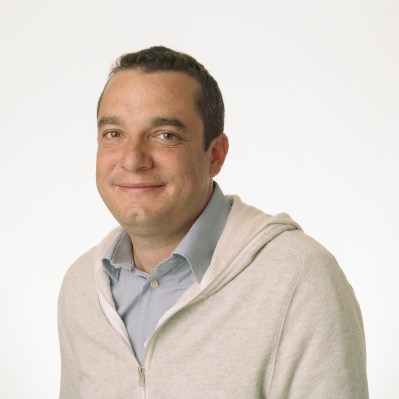For the last year or so, Index Ventures’ Saul Klein has been living in Israel, not soaking up the hot sun (well, maybe a little of that) but the local startup scene — the “Silicon Valley for the rest of the world,” as he calls it. Now he is gearing up to move back to London, and at the same he is taking part in a new initiative to continue building those bridges: the UK Israel Tech Council.
The group, associated with a new UK-Israel Technologies Hub based at the UK Embassy in the country, sounds like the kind of high-level effort that sits fairly far above the workings of startup life: some 35 “top business leaders and officials from both countries to develop an ambitious strategy for creating the UK/Israel tech partnership,” the group says. They include the British Ambassador to Israel, Matthew Gould; non-executive chairman of the UK-Israel Technologies Hub Haim Shani; Yossi Vardi; and senior executives from Virgin Media, Google, Alcatel Lucent, Amadeus Capital, NICE Systems, Pitango Venture Capital and Index, among others.
But at the same time, it is a signal of how some significant efforts are being invested to tap further into the evolving startup culture in the country, and to make sure there is mindshare at all levels concerning that.
Klein says that in his 17 or so months in Israel, he came to see just how much the Israel startup scene has evolved– whereas once it was squarely focused on “hard technology”: security, enterprise, semiconductors and the like. “Israel has not developed a reputation for consumer or Internet companies,” he says.
That, however, is changing — although some of the companies coming out — Soluto to remotely manage other people’s IT problems, or eToro offering a real-time “social” trading platform — are still drawing on the strengths of the hard technology know-how that put Israel on the tech startup map in the first place. (Soluto was a Disrupt winner in years past and Index invests in it; other Israeli startups in Index’s portfolio include MyHeritage and online shopping portal Abe’s Market.)
Klein calls Israel a “startup nation,” more so than anywhere else he has been. “At the moment there is more venture capital invested per capita in Israel than anywhere else, including Silicon Valley,” he says. “It has more patents, and a higher percentage of GDP spent on R&D than anywhere else in the world.” He also says that Israel alone launches more companies annually than the rest of Europe combined.
Going to Israel was a natural move for Index, Klein says. The company, which was founded some 20 years ago in Geneva, “is used to having to go where the entrepreneurs are. It’s not like Sand Hill Road here.”
And he says the creation of organizations like this new council are an important part of staying in the game: “We’ve been missing out on the opportunity in terms of the connection between the UK, Europe and Israel,” he says. “When those Israeli startups are looking to hire talent, or get funding, or find customers, they go to the Valley. When they stop in London, it’s just to change planes.”
Naomi Krieger, the director of the UK Israel Technologies Hub, says that they have already run one event in the last couple of weeks to get the ball rolling:
A number of UK-based executives from the likes of the BBC, Ogilvy, BBH and Samsung were taken around to meet Israeli startups working in new media. “The UK is strong on producing content but Israel is strong on coming up with innovative and new ways of getting that content to consumers,” she says. “Those executives came away with five or six business opportunities each they plan to follow up on.”
In addition to the digital sector, the other three areas that the council will focus its efforts are life sciences, cleantech, and — here’s a curve ball — the Israeli Arabic Internet industry. The last of these, she says, takes into account that there are already a number of Arabic media organizations in London, and that there is a lot of potential tapping into what Arabic-speaking Israelis are working to create. A new chapter in tech diplomacy, perhaps.
